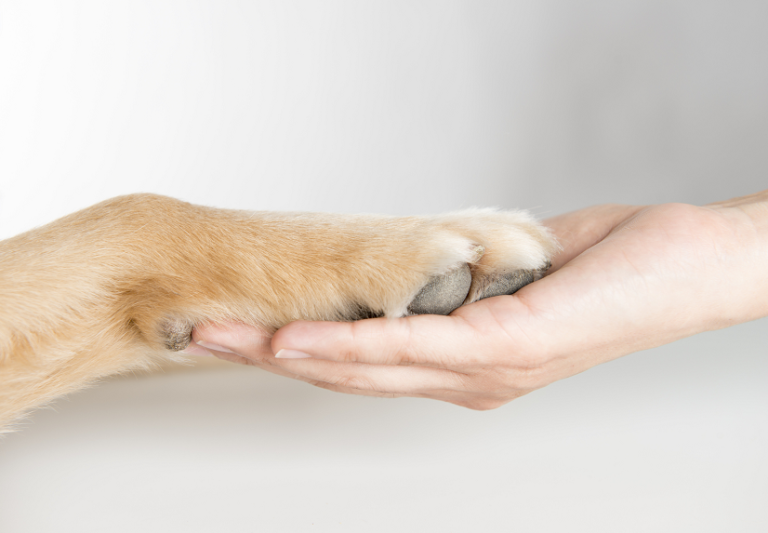Findings from a 2023 survey study conducted by researchers at Texas A&M University School of Public Health and published in the journal Vaccine has provided evidence there is a correlation between the attitudes of people toward human vaccines and pet vaccines. They found that people concerned about the safety, effectiveness and necessity of human vaccines are also concerned about pet vaccines, and that concern is a strong predictor of whether pet owners will choose to get their pets vaccinated.1
The study analyzed data from an August 2023 survey of more than 2,000 dog owners and more than 1,400 cat owners to evaluate pet vaccination rates, attitudes towards vaccination, and support for pet vaccination requirements.2
Respondents were asked if they owned a dog, a cat, or both. Dog and cat owners were also asked about their pets’ vaccine status for three diseases that affect dogs and three diseases that affect cats, which included rabies vaccine for dogs and cats, canine parvovirus and canine distemper vaccines for dogs, and feline panleukopenia and feline Bordetella bronchiseptica vaccines for cats, which is related to B. pertussis (whooping cough) in humans. The respondents were then asked to rate their support for vaccination requirements for each of the listed diseases.3
Survey Questions Respondents About Trust in Scientists and Vaccine Mandates
In addition to the questions about pet vaccines, respondents were also asked about their level of trust in scientists, support for vaccine mandates for children, political ideology, religious beliefs, non-veterinary expenses and frequency of exposure of their dogs to other dogs outside of their home. The respondents were also asked about their perceptions of safety, efficacy and importance of human vaccines.
The results of the study highlighted that a majority of pet owners had vaccinated their dogs and cats against rabies, although cats were vaccinated less often than dogs. Other core vaccines (vaccines recommended for all pets regardless of lifestyle) had slightly lower rates, but generally still had a high overall uptake. Pet owners had the highest vaccine hesitancy for non-core vaccines.4
Hesitancy for Human Vaccines Spills Over to Hesitancy for Pet Vaccines
In the last decade, surveys show that a growing number of Americans are choosing to opt out of getting vaccinated, especially over the past three years following declaration of a COVID-19 pandemic and promotion of COVID shots. However, research investigating pet vaccine hesitancy has been very limited.
The researchers of the 2023 survey study hypothesized that there are good reasons to believe that there is “spillover,” which causes individuals, who are skeptical of human vaccines, to transfer their concerns to pet vaccines. Researchers define “spillovers”as situations where behavioral or attitude changes with regard to one concept exert influence on attitudes or behavior in a related concept.5
The positive correlation between vaccine hesitancy for human vaccines and pet vaccines suggests the potential for spillover effects, but vaccine hesitancy for pets is not as high as it is with human vaccination. This is particularly true for parents hesitating to give their children vaccines like annual flu and COVID shots, which fall outside of the “core” vaccines recommended for children, such as tetanus, pertussis, polio and measles vaccines.6 7
If you would like to receive an e-mail notice of the most recent articles published in The Vaccine Reaction each week, click here.
Click here to view References:1 Haeder S. Assessing vaccine hesitancy and support for vaccination requirements for pets and potential Spillovers from humans. Vaccine 2023; 41(49): 7322-7332.
2 Mitchell RL. Strong Connections Found Between Vaccine Hesitancy And Support For Vaccinating Pets. Texas A&M Today Dec. 22, 2023.
3 Ibid.
4 Ibid.
5 Haeder S. Assessing vaccine hesitancy and support for vaccination requirements for pets and potential Spillovers from humans. Vaccine 2023; 41(49): 7322-7332.
6 Mitchell RL. Strong Connections Found Between Vaccine Hesitancy And Support For Vaccinating Pets. Texas A&M Today Dec. 22, 2023.
7 Haeder S. Assessing vaccine hesitancy and support for vaccination requirements for pets and potential Spillovers from humans. Vaccine 2023; 41(49): 7322-7332.













11 Responses
1 don’t believe the survey. Don’t believe the answer, if the alternative answer could be used against them.
2. it appears that they care much more about marking than safety.
It would be more important to find out if the vaccinated pets lived longer healthier lives with less medical expenses.
I have never vaccinated my pets or my kids, or me since adulthood. My kids have have near perfect attendance and one never caught COVID at all. Both attended school during COVID on a limited basis and we never wore masks unless we were forced to.
My pets, dogs have averaged 15+ yrs
My cats 18+ yrs
My rabbit is still doing fine at 6
So that’s all the proof I need. Hope that helps😀
Yeah data detective. The story is comedy gold. All the college students. Three thousand four hundred animal owners. All the paperwork, time resource allotment.
To figure out that people whom don’t take vaccines don’t necessarily want all this for their pets either.
Real rocket scientists in the making right here. Your tax dollars and grossly inflated collegiate expenditures, hard at work.
‘The spill over effect’. Oh yes of course, why didn’t I think of that?! (face palm)
We’re talking about lower life forms whom lick their own genitals as the primary hygiene management method vs a human being. Who comes up with this? Well, someone at Texas AM gets to keep their job another day I suppose. Eggggcellent.
These people are not experts. What they are doing is not science.
Over vaccination is a problem with vets. Blood titers for antibodies have shown most animal vaccines effective for 7 years. Yearly vaccines are used to get you in office to sell other services like mail clipping grooming blood work teeth cleaning etc. S vet friend was analyzing the levels of aluminum in the hair of yearly vaxxed dogs and cats as he believed it may have been driving high rates of kidney disease, epilepsy, and diabetes . He died before publishing. Also do not ever give your pets fluorinated tap water to drink as it lowers it, destroys thyroid, kidneys and causes arthritis as they are much more sensitive.
Hesitancy blindly assumes that the prospective vaccine recipient still trusts big pharma but has certain reservations, at least temporarily. On the other hand, there are those of us who will never take any vaccines or mRNA substances not because we are hesitant, but because we do not believe the lies and propaganda. That is what these silly fools cannot understand. I cannot be hesitant in the first place if I never considered taking any of these murder juices.
It’s not hesitancy at all, just misbelief in shots and health!
I am on the side of not vaccinating my dog. The only one I give her is rabies as if she would bite someone they would put her down. I make sure that my vet has thimersol free rabies vaccine. I do not board her in a kennel-therefore avoiding “requirements”. I believe these multiple doses are toxic for our pets. I have witnessed it in my personal circle.
Five years-the majority of people would never have believed in the disgusting failure of our doctors and scientist to protect all. Now-every fact that comes out leads back to the almighty dollar without regard to safety.
The free clinic ‘accidentally’ gave our cat a double dose of vaccines meant for a full size dog. Little Stretch-Lee was in a bad state for a very long time, months, years even. We never took him back and eventually he did get better. Then he died an early diabetic ketoacidosis shock death due to the abhorable state of every day cat food.
For our border collie, he does get a yearly rabies. Dude is gross and does not clean himself and I’m pretty sure he eats his own or other animals terds now and then. He likes to bite randomly and is on permanent lifetime social restrictions as a result. So yeah, we run him in yearly for that one vaccine so we can have our tag. The primary purpose being liability protection from frivolous lawsuits should he bite again.
Otherwise, it’s a waste of money and not even worth the ten or fifteen extra dollars the county clinic charges for those other few ‘vaccines’ they give. Our constant rebuttable; We don’t want this dog to live forever. It’s totally awesome to watch when they stick the nose deal on other peoples dogs and they subsequently sneeze it all over the floor right there in the main waiting room.
We don’t have spillover hesitation. That thirty to fifty dollars is more wisely spent on beer, steak, and top shelf whiskey. The dog benefits too, he gets the bone or fat cuts in the end. Everyone is happy. No vaccines necessary. He’s annoying me as I type this post, barking at birds and airplanes out back. Going to have to stick him in his kennel again.
Did you see the funny meme’s about the bird and chicken flu? The top caption reads; Bird flu cases are being reported. Then the bottom caption reads; There is an obvious solution for this. The photo itself; A chicken with a very tiny mini blue medical mask over it’s beak.
We got a 10 lb toy poodle bichon mix from he shelter in 2009. He was given one year shots from them. The following year I took him to the vet and he was given 3/3 year vaccines. He had his first seizure about 5 hours later. The seizures kept coming until we took him to a vet and he put him on phenobarbital. We never got him another vaccine. He was on the phenobarbital for the rest of his life which ended in October of 2022. One vet told me he got epilepsy and it just happened that his first seizure was right after the vaccines. Another told us that it was probably the vaccines. When this happened to him I started doing my research on them. If I knew in the mid 70s when my children were born what I know today I never would have gotten them any
i have a question, i definitely hate vaccines and the vet is too expensive. do we have to bring our puppy to the vet to deworm? they said it is required so they have no worms. i am a beginner in this area. please advice.
Cherry, I’ve got you covered on this one. Worms! Parasites! Fear! The process plays out like this; You go to walmart. Stroll on down the pet isle. You buy dewormer for ten dollars and give your dog the recommended dose at home. Then the dewormer sits on your shelf for the next ten years as you skip the vets, having realized they’re entirely too expensive and unnecessary. Then ten to fifteen years later when the furball who’s tracked dirt and feces all through your garage and home and caused you to gag on floating hairs that end up in your food and drink for the past decade finally passes away, you rediscover the half full bottle dewormer and toss it in the trash or the go to goodwill box.
Or you know, pretend that lower lifeform known as a puppy, which stops being cute ten days after you get them home and settled, march them proudly up to the veterinary clinic, pay $300 for the visit and another $50 for the dewormer pill delivered in a really official looking prescription bottle and press tablet sleeve, and go back six months to a year for the rest of your life repeating the process.
They told us chocolates were bad for dogs. Not a border collie! He loves the stuff. They said don’t let them have chicken bones, they’ll choke to death. Not a border collie! These things are his favorite meal and he crunches leftovers from costco rotisserie chickens down like breakfast cereal. Don’t give your dog the left over turkey leg and bone from the fair they said. The border collie’s eyes light up in disbelief and unimaginable joy, about twenty crunchy minutes later, the evidence is gone. One time he was kind of ailed and we were not sure why. About half way through his life process we gave him some of the old expired dewormer we bought when he was a puppy, and he was doing well again.
The deal with worms is you probably don’t have to worry if you’re not going to dog parks or always taking the animal to places where they may ingest a parasite such as through stagnant water or runoff or coming into contact with other animal terds and such. If you’re a daily dog walker get the dewormer low price from the store. If they’re back yard garage dwellers you probably don’t even need it.
We ended up with a border collie quite randomly and it was not the best choice for us. But it was the only animal we could find whom was not microchipped. As we get terminator vibes and don’t want to be chipped ourselves, we naturally had that spillover influence of not wanting our animal to become a tracking beacon at our side. So we went with the only available animal we could find which was not chipped at the time. Vets and vaccine free clinic people are always like, don’t you want the chip, what if he runs away, the chip could help trace him back to you to be returned home? Our constant response; If you want this dog you can have him free of charge. He’s got unlimited energy, is on constant growl and bark patrol and is known to bite children and mailmen. He literally will not run away even if he gets caught on the wrong side of the fence, he just sits there and howls to be let back in. We really wish he would find a new home on his own, but he refuses to do so.
The study indicated cat owners were more likely to skip vaccines. That’s because cats don’t bite hard enough to draw blood. And they’re difficult to catch so it’s pretty rare for anyone to notice their tags are expired or do anything about it. Kind of a similar reason why rabies vaccines are not necessary for children, except in cases when they’re feral and eat raw varmints from the field and bite other people. Good times.